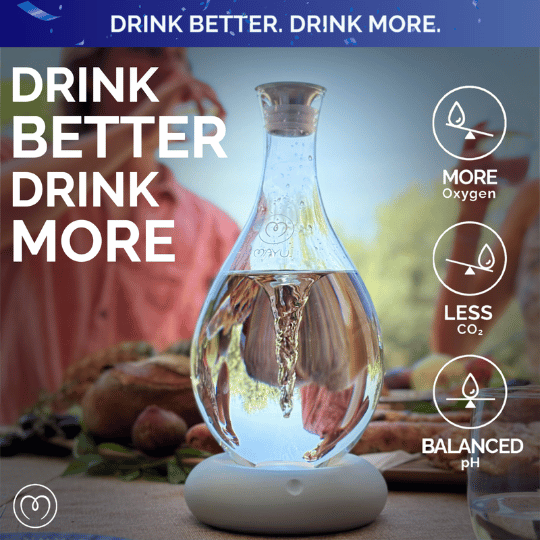Unlock a calmer, more focused you by transforming your daily rhythm with intentional habits that nourish mind, body, and spirit.
Key Takeaways
- Start your mornings with simple, intentional habits to boost focus and calm.
- Add gentle daily movement like walking or yoga to support overall wellness.
- Plan balanced, easy meals to stay nourished without added stress.
- Take mindful breaks throughout the day to manage stress and restore energy.
- Build consistency with realistic goals and a calming evening routine.
Start Your Morning with Purpose and Simplicity
Simplifying your morning helps you begin the day with clarity. Choose one or two meaningful activities, like stretching or hydrating, to support your natural wake-up rhythm. Set a clear intention for the day, planning your top priority enhances focus. Going to bed at the same time each night helps you rise more easily. Morning practices such as journaling or meditation support emotional balance and help you feel centered as the day begins.
Prioritize Movement with Gentle Daily Exercise
Adding light movement into your routine boosts both your physical and mental well-being. Activities like walking, yoga, or light workouts at places like Planet Fitness support circulation and flexibility without requiring intense effort. Start with just 10–15 minutes a day and gradually expand your practice. If you’re focusing on strength training, lighter exercises can aid in recovery and injury prevention. It’s all about consistency, movement should feel natural and not forced. In fact, regular physical activity does more than just improve your body; it has a profound impact on mental health too. Studies show that exercise helps reduce symptoms of depression and anxiety, improves self-esteem, and even promotes better sleep. It influences key areas of the brain that regulate stress, helping you feel more balanced and centered. Plus, it’s been linked to improved mood and the management of cravings, making it a powerful tool for enhancing both your physical and emotional wellness.
Create a Balanced and Nourishing Meal Plan
Healthy eating can be simple. Include a mix of colorful vegetables, proteins, and healthy fats in each meal. Planning ahead prevents decision fatigue, and batch cooking can streamline your week. Begin with small changes, introduce one new recipe each week and adjust as needed. Meals don’t need to be elaborate; dishes like veggie stir-fries or protein-packed salads are quick and satisfying.
Practice Mindful Breaks to Reduce Daily Stress
Short pauses throughout your day can calm your mind and recharge your energy. Every hour or two, take a moment to focus on your breath, step outside, or observe your surroundings. These mini-breaks help you reset, preventing tension from building. Integrating mindfulness into your routine can increase clarity and keep stress levels manageable.
Set Realistic Goals for Consistency and Progress
Approach goal-setting with practicality. Break larger goals into small, manageable steps. Simple objectives, like drinking more water or walking briefly each day, add up over time. Limit how many goals you pursue at once to avoid burnout. When goals are realistic and fit your lifestyle, progress becomes natural and lasting.
Build a Calm and Consistent Evening Wind-Down Routine
Create a relaxing atmosphere in the evening by choosing peaceful activities like reading or gentle movement. Dimming lights and stepping away from screens signals your body that it’s time to rest. Keeping a regular bedtime allows your system to unwind naturally. You might include a quiet ritual, like a cup of tea or writing in a journal, to ease into rest. Avoid large meals or stimulating tasks late in the day to improve sleep quality.
Incorporate Gratitude and Reflection into Your Day
Noting a few things you’re thankful for each day can improve your outlook. Try incorporating gratitude into your morning or evening to keep it steady. Reflecting on what brought you joy or peace strengthens your mindset and promotes resilience. A question like “What made me smile today?” can help shift your focus toward the positive. Research supports the power of gratitude in improving mental health. Studies have found that engaging in simple activities, like keeping a gratitude list, can reduce stress and symptoms of depression. One study on workers showed that regular gratitude practices led to better mental well-being, though the effects on overall happiness were less clear. This suggests that small, consistent acts of gratitude can be a simple yet effective tool for boosting emotional health and resilience, making it a great addition to your daily routine.
Optimize Your Sleep Schedule for Daily Energy Boost
A regular sleep-wake cycle helps your body function at its best. Go to bed and wake up at the same time to support natural rhythms. If your schedule shifts, allow yourself a few days to adjust gently. Aim for 7–9 hours of quality rest, and avoid long naps if you wake up groggy. Fine-tune your routine until you find the rhythm that leaves you refreshed and ready for the day.
FAQs
How can I identify and remove hidden time-wasters in my current routine?
To eliminate hidden time-wasters, track how you spend each day to identify tasks that consume time without adding value. Cut or reduce low-priority activities, and look for repetitive tasks you can automate or delegate, like scheduling or replying to common emails. Focus on your top priorities, batch similar tasks to improve efficiency, and set clear boundaries to avoid interruptions. This helps build a more efficient and sustainable routine.
What’s the best way to gradually introduce new habits without disrupting my existing routine?
Introducing new habits doesn’t have to be overwhelming. Start with ones that fit your current lifestyle. For example, if you’re focused on work, add quick habits like stretching or deep breathing. Choose habits that align with your schedule to avoid added stress. Instead of changing everything at once, add one habit every two weeks. This gradual pace prevents burnout and helps you adjust smoothly.
How do I deal with guilt or self-criticism when I fall off my routine?
Falling off your routine can bring guilt, but missing a day doesn’t mean failure. Practice self-compassion, treat yourself as you would a friend going through a tough time. Instead of blaming yourself, see setbacks as part of the journey. Don’t dwell; take small steps to return to your routine. Mistakes are normal and don’t erase your progress.
Can I build a healthier routine if my daily schedule is unpredictable (e.g., shift work, caregiving)?
Building a healthier routine with an unpredictable schedule is possible with a few adjustments. Prioritize your health by setting small, consistent time slots for self-care. Use flexible routines that fit your changing hours, like a quick stretch or a short workout during breaks. If you’re a caregiver, try brief activities like walking to stay active. Manage stress with mindfulness or by setting boundaries between work and personal time. Stay on track with flexible meal planning and regular hydration. The key is consistency, prioritize yourself in small, manageable ways.





